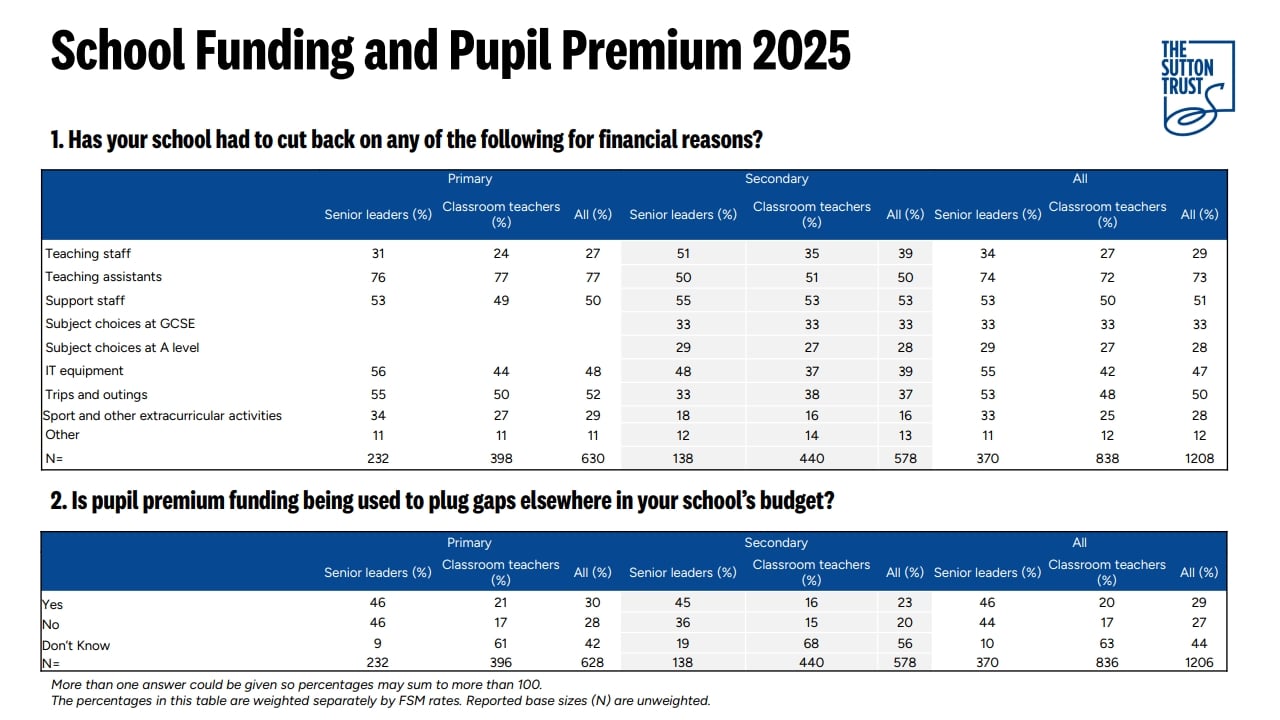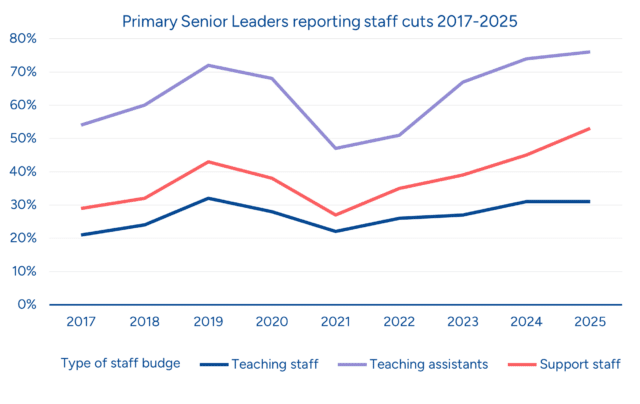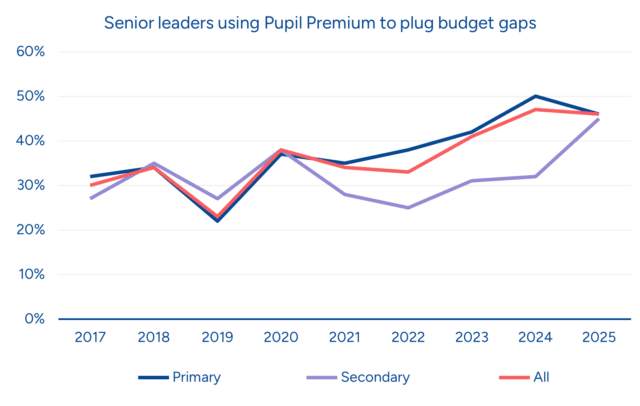Our annual survey of 1,208 teachers, conducted by the National Foundation for Educational Research (NFER) as part of their Teacher Voice Omnibus Survey, takes a closer look at schools funding and how school leaders are spending their budgets this year.
Last year’s release found the state of school funding worsening, with many school leaders reporting having to cut down on staff, as well as spending on a range of other activities in their school. This year’s survey suggests that far from improving, the situation is getting worse, with even more cuts to staffing, IT equipment, and sports budgets, as well as trips and outings, across both primary and secondary schools. Similarly, Pupil Premium is still being used to plug funding gaps in school budgets, with more schools reporting this than in 2024.


